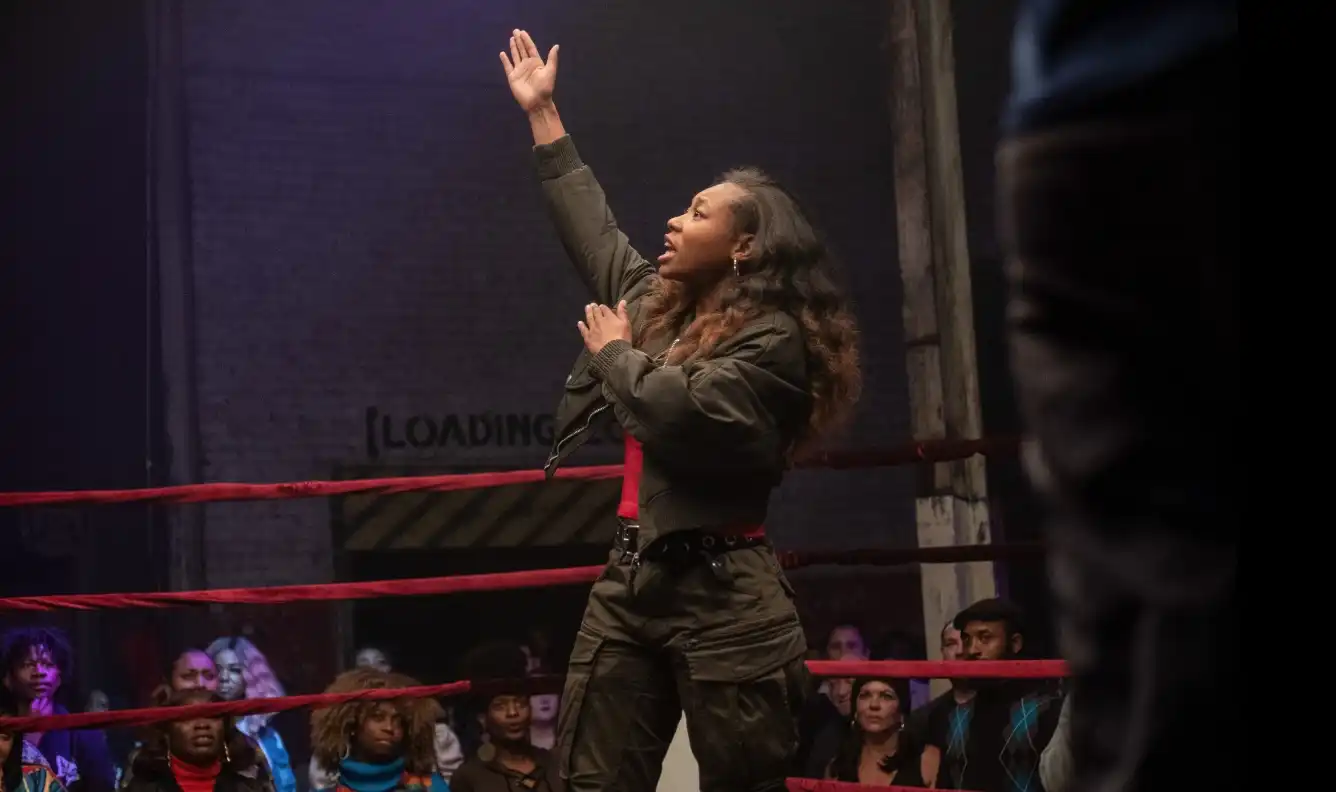
Film Review: On the Come Up
Film Reviews
On the Come Up
Director: Sanaa Lathan
Paramount Pictures
Released 09.23.22
Adapted from Angie Thomas’ novel of the same name, On the Come Up chronicles a young woman’s aspirations to make it big in the world of rap despite the racial prejudices she faces at her school as well as struggles in her community such as gang violence and the ever-present danger of her family being evicted from their meager living space. That synopsis could’ve applied to a number of other similar movies with the same plot. This film doesn’t bring any new material to these important conversations and instead opts for more cliché and digestible moments of drama.
Set in Garden Heights, the same neighborhood in which the excellent The Hate U Give (2018) takes place, up-and-coming rapper Bri Jackson (Jamila Gray) lives to follow in her late father’s shoes and become one of the greatest rappers in the neighborhood. She’s also determined to keep her and her family, namely her mother (Sanaa Lathan) and older brother (Titus Makin Jr.), from losing what little of a home they have. After Bri draws the attention of a manager named Supreme (Method Man), he introduces her to a world of wealth and popularity at the cost of heightened struggles in Bri’s community.
The similarities with The Hate U Give start and end with its Garden Heights setting. Where that film presented a prescient and pointed story about contemporary racism, On the Come Up is comparatively cliché, melodramatic and ultimately a predictable film. I can’t blame Lathan’s direction; it’s serviceable for an unengaged viewer that doesn’t want to think about the racial implications that screenwriter Kay Oyegun adapts from Thomas’ book. The most interesting thing Lathan does with Bri’s character is have her rap the inner monologue as a voiceover for the story.
Oyegun’s screenplay tries to fit far too many ideas into the story that Lathan fails to visually resolve in satisfying ways except with small vignettes toward the end of the film that aren’t developed fully, from Bri’s mother’s addiction problems to her gay friend’s surprise boyfriend to potential gang violence that has no stakes and makes no bones about its significance to the story or to the fictional community. The rap battles themselves serve as the “action sequences,” but the raps themselves don’t pack as big of a punch as the crowds celebrating them would have you believe. At an already bloated one hour and 56 minutes, On the Come Up feels like it needs another two hours to explain why I should care about any of the people within Bri’s orbit.
Bri’s character development is primarily tied to her rap skills, and as she battles other wannabe rappers, she proves she has what it takes to be successful. This draws the attention of Supreme, who provides Bri the key to being a successful rapper. The film presents what she records as being a popular sellout, lacking the artistic integrity that she had when she was battling other up-and-comers in the arena, yet the film neglects to explain why what she records is ultimately harmful to her future endeavors as a rapper.
Jamila Gray as Bri is a bright spot in an otherwise dull movie. Her chemistry with Michael Cooper Jr. and Miles Gutierrez-Riley, who play her friends, is fun and allows the three of them to have pointed conversations about their racial standing in the community as some of the few Black and Latinx kids at the mostly white school they attend. The surprise, standout performance comes from Lathan as Bri’s mother trying to make ends meet by the skin of her teeth, a recovering addict parenting a 16 year old making questionable decisions for her future. The rest of the supporting cast is memorable enough to work for the story, particularly Da’Vine Joy Randolph as Bri’s Aunt Pooh for her outspoken personality and ostentatious outfits as well as her attempts to be a pseudo-mother for Bri. Method Man as the sly music manager proves to be a double-edged blade for Bri, giving her genuine guidance to being a successful rapper while potentially compromising her abilities to voice her perspective through rap.
On the Come Up lacks both the social commentary that would make it land as an exploration of racial dynamics and the character work required to deliver an engaging portrait of Bri as a skilled rapper. As with hip-hop, there are myriad options for styles and flows and lyrics, and there are just as many options for better movies about these same themes that are better told stories. –Eric Ray Christensen
Read more reviews of dramas concerning societal tension:
Film Review: Knock at the Cabin
Film Review: Broker
